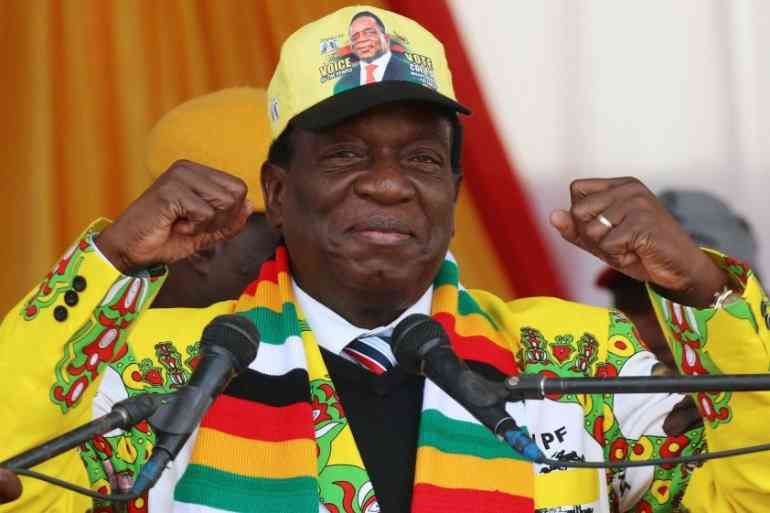
PRESIDENT Emmerson Mnangagwa yesterday touched off a storm after he publicly backed United States President Donald Trump’s decision to deport more than 500 undocumented Zimbabweans as part of his administration’s mass deportation policy.
The move comes amid a broader crackdown on illegal immigration under Trump’s administration, which has continued to enforce stringent immigration policies.
At least 545 Zimbabweans are part of a larger group of 1 445 549 non-citizens targeted for removal under a US Immigration and Customs Enforcement (ICE) programme since November 2022.
In a post on X yesterday Mnangagwa said: “The government of Zimbabwe supports the United States government’s decision to repatriate and return our Zimbabwean citizens who may have been residing in the US illegally.”
This is not the first time Zimbabwe has had to grapple with the repatriation of its citizens from Western nations.
In recent years, the United Kingdom (UK) has also deported Zimbabweans, who were found to be living in the country illegally or who had overstayed their visas.
Between 2020 and 2023, the UK government deported dozens of Zimbabweans as part of its efforts to enforce immigration laws.
In 2021, a charter flight carrying 14 Zimbabwean nationals landed in Harare, sparking outrage among human rights groups and activists.
- NoViolet Bulawayo’s new novel is an instant Zimbabwean classic
- Jah Prayzah, Zanu PF rekindles ‘lost love’
- Bank workers appeal to Ncube for tax relief
- Indosakusa marks 21-year anniversary milestone
Keep Reading
The deportees included individuals who had lived in the UK for years, some of whome claimed they faced persecution and economic hardship if they returned to Zimbabwe. The UK Home Office defended the deportations, stating that those removed had no legal right to remain in that country and had exhausted all avenues of appeal.
“The UK has a fair and humane immigration system and we expect those with no right to remain in the country to leave voluntarily,” a Home Office spokesperson said at the time.
However, critics argued that the deportations were insensitive, particularly given Zimbabwe’s on-going economic challenges and political instability.
Human rights organisations, including the Zimbabwe Human Rights NGO Forum, condemned the move, warning that returnees could face significant difficulties reintegrating into a country grappling with high unemployment, inflation and limited social services.
Political analysts have also noted that the recent deportations from both the US and UK highlight the challenges faced by Zimbabweans seeking better opportunities abroad.
“The recurring theme of deportations underscores the desperation of many Zimbabweans, who leave the country due to economic hardships,” Pardon Taodzera, a political analyst, said.
“While host countries have the right to enforce their immigration laws, there is a need for a more compassionate approach, especially when dealing with individuals fleeing dire circumstances.”
Legal expert Aaron Hamauswa said the deportations could exacerbate Zimbabwe’s existing socio-economic challenges.
“Returning citizens will need significant support to reintegrate into society,” Hamauswa said.
“Without proper mechanisms in place, we risk creating a cycle of poverty and displacement.”
Local Government and Public Works minister Daniel Garwe also castigated Zimbabweans facing deportation from the US for opposing the ruling Zanu PF, adding that they should come back home and help to build the country.
Garwe said the deportation of African nationals by the American president was for Zimbabwe’s own good.
Critics say the crisis in the country is forcing citizens to seek greener pastures in other countries.
“The government must address the root causes of migration, such as unemployment and poor governance, to prevent citizens from leaving in the first place,” People’s Unity Party leader Herbert Chimuka said recently.
Zimbabweans living in the diaspora have contributed significantly to the country’s economy, with Reserve Bank of Zimbabwe governor John Mushayanhu revealing that they contribute 17% to the country’s foreign currency inflows .










